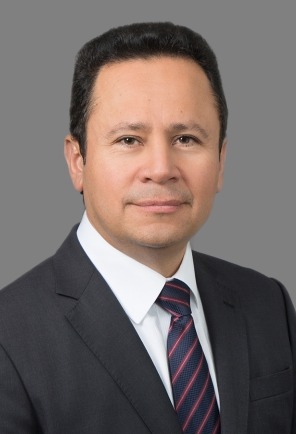Where in the World Are Your Employees Today? Find Them and Discover the Sticky Tax Implications They May Bring Back with Them
In the popular series "Where in the World Is Carmen Sandiego?" Carmen is an international thief who sneaks around the world dodging the crime-fighting moves of her followers while leaving behind fundamental lessons of math, geography and other subjects in her wake. Unfortunately, when your colleagues and employees travel around the world advancing the objectives of your company, what they may bring back is a bag of tax and legal risks that may result in unexpected tax and criminal liabilities for themselves and the company. This article presents some key tax considerations for companies with mobile workforces, focusing on the general income tax considerations of an entity doing business outside its home country.
Companies are investing and doing business in foreign countries to expand their operations and/or capture new target markets in growing economies. Therefore, with a mobile workforce and globalization at its best, it is sometimes difficult to know what countries the company's employees are traveling to, and what are the related tax consequences of their deployment. Meanwhile, tax administrations continue to operate and manage their tax revenues on a national, jurisdictional or territorial basis. This dichotomy presents a challenge to companies that need to manage the tax, legal and immigration exposure of their mobile workforce, while meeting the global demand for their services and products.
Establishing Presence in a Host Country
In general, host countries reserve the right to tax local "source" country income that a company earns in such jurisdiction. How local source income is determined varies by jurisdiction and locality, and therefore, it is impossible to have a catch-all definition. A company may unknowingly be considered to have a trade or business under local tax laws of the foreign country when it performs minimum activities in the country. For example, an employee conducting business development, soliciting potential customers and targets, performing quality control, supervising manufacturing activities or conducting any other business-related activities in the foreign jurisdiction may unknowingly trigger tax consequences for the company and herself.
Any employee or contractor who spends a minimum number of days working in a foreign country is a potential source of risk for the company. The rule of thumb used by many companies that it takes 183 days to trigger taxation is unreliable, at best, and can lead to unexpected surprises for the company. Many jurisdictions have not entered into treaties or do not have rules addressing the issue, and the tax authorities apply divergent standards leading to inconsistent results. Moreover, many foreign countries levy exorbitant penalties and interest for failure to comply and may threaten the company and its employees with criminal actions. Penalties in many jurisdictions can increase the liability exponentially in comparison to the original tax due.
Permanent Establishments
It generally takes a much lower threshold of activity to establish a taxable presence than to establish a permanent establishment (PE) as defined in income tax treaties. In the OECD Model Tax Convention on Income and on Capital, the PE article defines how a taxable presence of a foreign company is established in a host country. PE is generally defined as "a fixed place of business through which the business of an enterprise is wholly or partly carried on." Moreover, a PE includes a place of management, a branch, an office, a factory, a workshop, and a mine or other site of natural extraction. Different types of PEs can exist:
- Construction or Installation PE: Under the standard language of the OECD tax model, a PE exists when a building site or construction or installation project lasts for more than 12 months. Although this provision seems simple and uncomplicated, it has its own intricacies that need to be considered by companies engaging in these types of projects. The gist of this determination is the nature and duration of the projects. Although as a general rule the duration test is made on a project-by-project basis, if certain provisions are met, it is possible for the length of certain projects to be aggregated. Thus, various individual projects that initially did not constitute a PE may turn out to constitute a PE, resulting in the taxability of all those projects in the host country. Moreover, it is important to look at the nature of the project to ensure that it is within a tax treaty's construction or installation article and not a service or other type of business activity.
- Agency PE: A PE may be constituted under situations in which a person is acting on behalf of an enterprise and has, and habitually exercises, the authority to conclude contracts in the name of the company. Generally, these activities may not constitute a PE if they relate to limited activities of a preparatory and auxiliary nature.
- Service PE: Newly signed treaties and the latest protocols include an additional clause under the PE section related to the performance of services. For example, the fifth protocol between the U.S. and Canada provides that a company may constitute a PE in connection with the performance of services if certain conditions are met.
Identifying the Company's Risks and Costs Associated with Operations in Host Countries
It is crucial for a company with current and/or future presence in a foreign country to foresee and assess the nature and length of the activities it will carry out in both the short and long term in order to determine the company's tax, legal and immigration exposure under local law. In this respect, the company needs to gather the facts of the project, including:
- Length of project and personnel (whether employees or contractors) involved in the project;
- Length of stay of expatriate employees or contractors;
- Frequency of visits;
- Nature of services or activities performed in the jurisdiction; and
- Structure of expatriate assignment and whether a secondment agreement is in place.
This information may be obtained from sources such as HR records, expense reports, time sheets, visas and work permit requests, etc. This should not be a clue-finding process as in the case of Carmen Sandiego. The ability of key HR, legal and tax personnel to identify these factors should be as automated as possible and preferably managed in a centralized database and location. Once this information is known, the company will be able to work with local counsel to determine what it needs to do to comply with local-country tax, immigration and legal requirements and whether the current structure is the best way to perform activities in the local country.
In some cases, and depending on the type of assignment, the local-country client may require the company to identify whether it has a taxable presence in the local country or not by supplying additional documentation, such as registrations to do business in the country, registrations with the tax administrations, and proof of compliance with legal or immigration rules, among others. This is important because in certain jurisdictions, unless the company registers to do business in the country, it may not perform any activities in such jurisdiction and may have difficulties getting paid by the local client on its invoices.
Below are some of the potential risks and costs that should be considered before undertaking any international project:
PE or Trade or Business Costs: If the activities carried out by the foreign company constitute a PE or trade or business in the host jurisdiction, the tax authorities in the host country may impose tax on the earnings derived from such activities on a gross or net basis depending on the level of activities and how these are structured. The amount of income that the country determines is attributed to the PE or business presence may depend on how the contracts and invoices are prepared and the ability to carve out the particular services and activities. It is important to note that while the home country may allow some of the local-country taxes to be credited, the limitations and other conditions imposed to obtain such credits can significantly reduce their value. In addition, non-creditable, indirect and transactional taxes should be considered, as these may be significant to the overall profit of the project.
Regulatory and Administrative Costs: Doing business in a foreign jurisdiction may require the foreign company to obtain licenses and register with certain bureaus in order to do business or transact locally. Moreover, the foreign company may incur income and non-income tax return preparation costs in order to remain compliant under domestic laws.
Employment Costs: Under certain circumstances, the foreign company, in its role as employer, may be responsible for withholding and remitting the pertinent employment and social security contributions to the local authorities.
Immigration Risks: Both the company and those employees deployed to international assignments should keep track of the days of presence in the local jurisdiction and the visa requirements in order to perform services in such jurisdiction. Employees who stay more days in the host country than their visa allows may encounter migratory problems that range from being prohibited from entering the host country for a certain period of time, or at all, to criminal prosecution and jail.
Interest and Penalties Costs/Risks: In the event pertinent licenses, registrations, tax returns and/or remittances have not been taken care of in a timely manner, the foreign company shall bear the costs of any interest and penalties assessed by the local authorities. Moreover, in certain instances, the assessed penalties may be of a criminal nature and, as such, may lead to the shutdown of the company's operations in the host jurisdiction.
Reputational Risks: The reputation of the company may be at stake in the event it is found that the company either is not abiding with the local laws or is failing to pay taxes in the host country.
FIN 48 Liability: The existence or not of a PE in a foreign jurisdiction may have significant consequences to the financial statements of the company, especially those required to comply with FIN 48 standards. This analysis needs to be done by jurisdiction, per year, and should include all the countries in which the company has business activities. This review helps the company determine whether there is exposure (i.e., taxes, penalties and interest) in the country, whether a reserve is needed and when the reserve should be released. In practice, we have seen that the results of a FIN 48 analysis may be a bitter surprise to management, which in some cases is unaware of the exposure this represents in the foreign country and the effects on the financial position of the company.
Other: If the local authorities determine that the foreign company has materially and negligently failed to comply with local tax laws, the foreign company may be precluded from transacting in the host jurisdiction.
Ways to Mitigate Risks and/or Reduce Costs in Host Countries
As discussed in the prior section, one of the most fundamental considerations before pursuing the execution of an international assignment is identifying the potential costs and related risks. Certain mechanisms may be implemented to mitigate the risks and/or reduce the potential costs:
- Ensure active communication between tax, legal, HR and business management so that international projects are identified early on in the process and the possible consequences can be anticipated before it is too late.
- Centralized coordination and data management is crucial in order to track the days of presence in a particular host jurisdiction, type and length of projects, etc. A centralized database helps the company determine whether a PE exists during the year in each jurisdiction, and facilitates access to data necessary to compile the returns, compute the exposures or respond to any notices or questions raised by the local tax authorities.* Before business activities are established in a foreign country, a determination of whether a PE or trade or business may be created in the foreign country should be made with input from your local tax advisors and steps to mitigate risks for the company built into the contracts and other arrangements made to deploy the team.
- Depending on the magnitude of the project and the risks associated with the presence in the foreign country, it may be necessary to establish a local subsidiary or branch for the activities. The local entity or branch may second the employees of the company to facilitate the legal, tax and immigration compliance for the company and its employees. The secondment agreement should provide for the transfer of employees from one entity to the other (from both a legal and economic standpoint) in order to prevent the company from constituting a PE in the host jurisdiction through an agent. Furthermore, there should be a clear assignment of the contractual obligations of the company in the local jurisdiction to the subsidiary with a corresponding arm's length compensation validated in the home and in the local country. Note that jurisdictions are currently scrutinizing these transfers of obligations and employees by analyzing the substance over form of the transfers (legal vs. economic employer) and the substantiality of the consideration assigned.
- Review contracts with the local client. As mentioned above, the idea is to segregate activities into different contracts (as opposed to having one contract for all the activities). For example, if the project in the foreign jurisdiction includes the sale and installation of machinery, these two activities should be included in separate and distinctive contracts so as to isolate the income from services (which may be deemed a service PE in the local country) from the income from the sale of the machinery. Properly isolating the PE activities may mitigate the risk of the sales transaction being subject to local tax. Maintaining strong supporting documentation of the allocation is critical to the success of this strategy.
Alvarez & Marsal Taxand Says:
Tax authorities around the globe are paying more attention to the type of work and projects that companies are carrying out in their jurisdictions, and are consequently specifically examining those inbound activities in the pursuit of the collection of additional tax revenue. Multiple countries are performing joint examinations, cooperating and sharing any relevant information, in order to assess the local tax exposure and obligations the incoming company may have. As a result, if your company currently has or is planning to have operations in a foreign country, you should take immediate action by reviewing the current and prospective foreign activities, as well as by establishing processes with the intention of mitigating, preventing or minimizing any trade or business or PE risks and costs.
Disclaimer
As provided in Treasury Department Circular 230, this publication is not intended or written by Alvarez & Marsal Taxand, LLC, (or any Taxand member firm) to be used, and cannot be used, by a client or any other person or entity for the purpose of avoiding tax penalties that may be imposed on any taxpayer.
The information contained herein is of a general nature and based on authorities that are subject to change. Readers are reminded that they should not consider this publication to be a recommendation to undertake any tax position, nor consider the information contained herein to be complete. Before any item or treatment is reported or excluded from reporting on tax returns, financial statements or any other document, for any reason, readers should thoroughly evaluate their specific facts and circumstances, and obtain the advice and assistance of qualified tax advisors. The information reported in this publication may not continue to apply to a reader's situation as a result of changing laws and associated authoritative literature, and readers are reminded to consult with their tax or other professional advisors before determining if any information contained herein remains applicable to their facts and circumstances.
About Alvarez & Marsal Taxand
Alvarez & Marsal Taxand, an affiliate of Alvarez & Marsal (A&M), a leading global professional services firm, is an independent tax group made up of experienced tax professionals dedicated to providing customized tax advice to clients and investors across a broad range of industries. Its professionals extend A&M's commitment to offering clients a choice in advisors who are free from audit-based conflicts of interest, and bring an unyielding commitment to delivering responsive client service. A&M Taxand has offices in major metropolitan markets throughout the US., and serves the U.K. from its base in London.Alvarez & Marsal Taxand is a founder of Taxand, the world's largest independent tax organization, which provides high quality, integrated tax advice worldwide. Taxand professionals, including almost 400 partners and more than 2,000 advisors in nearly 50 countries, grasp both the fine points of tax and the broader strategic implications, helping you mitigate risk, manage your tax burden and drive the performance of your business.
To learn more, visit www.alvarezandmarsal.com or www.taxand.com



